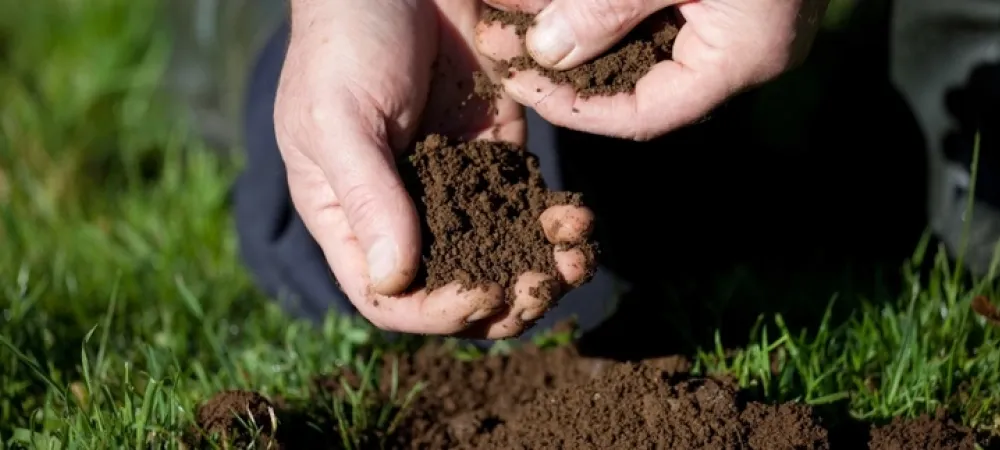Should I Test My Soil Before Fertilizing in Georgia?

Georgia, with its rich tapestry of landscapes, offers a variety of soil types that influence everything from plant growth to nutrient management. Before applying fertilizer, it's crucial to understand your soil’s unique characteristics, which can vary significantly across the state. Whether you're a homeowner in Atlanta, a property owner in Savannah, or reside in the scenic foothills of North Georgia, soil testing can be a game-changer for maintaining a healthy and thriving landscape.
The Soil Types Across North Georgia
North Georgia's soil diversity ranges from the clay-rich red soils of the Piedmont region to the sandy soils of the Ridge and Valley region. Here's a closer look at the different soil types you might encounter:
- Red Clay Soils: Predominant in the Piedmont region, these soils are known for their high iron content, which gives them a reddish color. While they offer poor drainage, they can be acidic and may require specific types of fertilizer to correct nutrient imbalances.
- Sandy Loams: Found in the Ridge and Valley regions, these soils have excellent drainage but often struggle to retain nutrients. Homeowners in this area should be cautious with their fertilizer choices to avoid over-application.
- Loamy Soils: Common in the Appalachian foothills, loamy soils offer a balanced mix of sand, silt, and clay. They typically have good fertility and drainage properties but still benefit from tailored fertilizer applications based on soil testing.
Each soil type has different nutrient needs and drainage properties. Testing your soil ensures you address these specific characteristics effectively.
Why Do A Soil Test For Georgia Lawns?
A soil test is a scientific analysis that provides detailed information about the nutrient composition, pH, and overall health of your soil. Understanding the condition of your Georgia soil can help you adjust your fertilization technique.
Nutrient Deficiency Identification
Soil testing reveals the levels of essential nutrients such as nitrogen (N), phosphorus (P), and potassium (K), as well as secondary nutrients and micronutrients. Understanding these levels helps you apply the right amount and type of fertilizer to meet your lawn's specific needs.
pH Level Adjustments
Georgia soils often have varying pH levels. For example, red clay soils can be quite acidic. Most plants thrive in a pH range of 6.0 to 7.0. Testing your soil's pH will help you determine if your soil is too acidic or too alkaline and if lime or sulfur amendments are necessary to adjust the pH, which can help with nutrient absorption.
Customized Fertilization
Different plants and grasses have varying nutrient requirements. Soil testing provides insights into what your specific lawn needs, allowing for customized fertilization plans that support healthy growth throughout the year and avoid over-fertilization.
Cost-Effective
By understanding your soil's specific needs, you can avoid purchasing unnecessary fertilizers and amendments, making soil testing a cost-effective approach to lawn care.
Local Climate Considerations
Georgia experiences a range of weather conditions, from hot summers to cold winters. Soil testing helps you tailor your fertilization schedule and methods to suit the local climate, ensuring optimal growth and resilience of your lawn.
How to Test Your Georgia Soil
Testing your soil is straightforward. Here’s how you can do it:
- Collect Soil Samples: Use a soil probe or garden trowel to collect soil samples from several locations in your lawn. Aim for a depth of 4-6 inches. Combine these samples into a single container for a representative sample.
- Prepare the Sample: Remove any debris, such as roots or rocks, from the soil sample. Allow the soil to dry before sending it to a lab or using a home testing kit.
- Choosing a Testing Lab: Several local extension services and private laboratories offer soil testing services. In Georgia, the University of Georgia Cooperative Extension offers soil testing for homeowners. You can also use a home testing kit for basic results.
- Interpreting Results: Once you receive your soil test results, review the recommendations carefully. They will indicate nutrient levels, pH balance, and the suggested type and amount of fertilizer needed. Follow the recommendations provided to adjust your fertilization and soil amendment practices accordingly. For example, if your soil test indicates a high phosphorus level, opt for a balanced or low-phosphorus fertilizer.
In addition to synthetic fertilizers, consider organic options like compost or manure, which can improve soil health and structure over time.
When Should You Test Your Soil in Georgia
Ideally, you should test your soil:
- Before Applying Fertilizer: To determine the correct type and amount of fertilizer needed. Whether you have warm-season or cool-season grasses, learn about the best time to fertilize your Georgia lawn.
- In the Fall or Early Spring: Soil tests are most effective when performed during these times, allowing you to make adjustments before the growing season begins.
- Every 2-3 Years: Even if you’ve tested your soil before, it’s wise to retest every 2-3 years or if you notice changes in plant health. This helps you adjust your fertilization practices as needed.
Soil Testing
In North Georgia, where soil types and conditions vary widely, a soil test is an invaluable tool for effective and environmentally responsible fertilization. By understanding your soil’s needs and following tailored recommendations, you can enhance your landscape’s health and beauty while contributing to a more sustainable environment.
For personalized advice on soil testing, how to interpret results, and professional fertilization services in North Georgia, contact a local lawn care professional at WinLAWN.